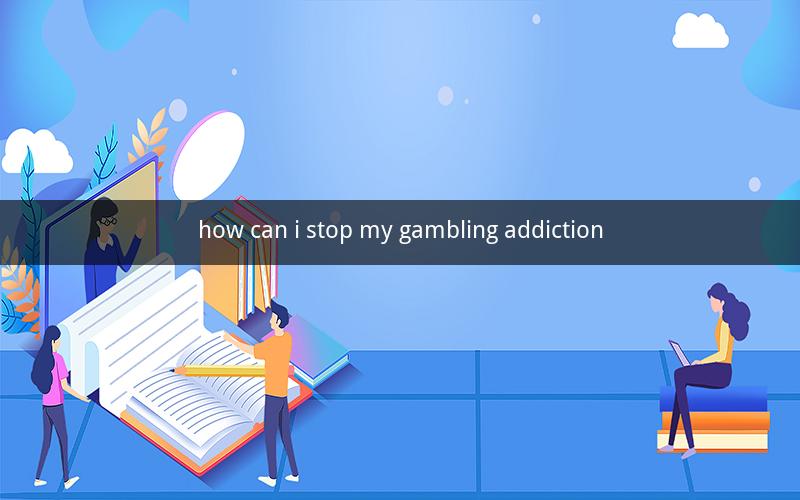
Contents
1. Understanding Gambling Addiction
2. The Psychological Aspect of Gambling Addiction
3. The Physical and Social Consequences of Gambling Addiction
4. Recognizing the Signs of Gambling Addiction
5. Seeking Professional Help for Gambling Addiction
6. Self-Reflection and Self-Help Techniques
7. Support Systems and Communities
8. Treatment Options for Gambling Addiction
9. Preventing Relapse
10. Personal Stories and Testimonials
Understanding Gambling Addiction
Gambling addiction, also known as gambling disorder, is a behavioral addiction characterized by an inability to control or stop gambling despite negative consequences. This addiction can affect individuals of all ages, genders, and socioeconomic backgrounds. Understanding the nature of gambling addiction is the first step towards overcoming it.
The Psychological Aspect of Gambling Addiction
Gambling addiction often stems from underlying psychological factors, such as the need for excitement, the thrill of taking risks, and the desire to escape reality. These factors can lead to compulsive gambling behaviors that are difficult to control.
The Physical and Social Consequences of Gambling Addiction
Gambling addiction can have severe physical and social consequences. Physically, it can lead to health issues such as stress, anxiety, and sleep disorders. Socially, it can strain relationships with family and friends, lead to financial difficulties, and even result in legal problems.
Recognizing the Signs of Gambling Addiction
Identifying the signs of gambling addiction is crucial for taking the first step towards recovery. These signs include:
- Inability to control gambling behavior
- Spending more time and money on gambling than intended
- Feeling restless or irritable when attempting to stop gambling
- Continuing to gamble despite negative consequences
- Lying to family and friends about gambling activities
Seeking Professional Help for Gambling Addiction
Seeking professional help is essential for overcoming gambling addiction. A therapist or counselor can provide personalized treatment and support to help individuals manage their addiction.
Self-Reflection and Self-Help Techniques
Self-reflection and self-help techniques can also be effective in overcoming gambling addiction. These techniques include:
- Keeping a gambling diary to track gambling behaviors
- Setting limits on gambling activities
- Developing healthy coping mechanisms, such as exercise, hobbies, and social activities
- Seeking support from friends and family
Support Systems and Communities
Support systems and communities can provide additional support for individuals struggling with gambling addiction. These can include:
- Gamblers Anonymous (GA)
- Gamblers Help Online
- Online forums and chat rooms
Treatment Options for Gambling Addiction
Treatment options for gambling addiction include:
- Cognitive-behavioral therapy (CBT)
- Contingency management
- Family therapy
- Support groups
Preventing Relapse
Preventing relapse is a crucial aspect of overcoming gambling addiction. This can be achieved through:
- Continuing therapy and support group participation
- Maintaining healthy coping mechanisms
- Being vigilant about triggers and stressors
Personal Stories and Testimonials
Personal stories and testimonials from individuals who have overcome gambling addiction can provide inspiration and hope for others struggling with the same issue.
Q&A
1. What are the signs of gambling addiction?
- Inability to control gambling behavior, spending more time and money on gambling, feeling restless or irritable when attempting to stop gambling, continuing to gamble despite negative consequences, lying to family and friends about gambling activities.
2. How can I seek professional help for gambling addiction?
- Contact a therapist or counselor specializing in gambling addiction. They can provide personalized treatment and support.
3. What are some self-help techniques for overcoming gambling addiction?
- Keep a gambling diary, set limits on gambling activities, develop healthy coping mechanisms, seek support from friends and family.
4. What support systems and communities can help with gambling addiction?
- Gamblers Anonymous (GA), Gamblers Help Online, online forums and chat rooms.
5. What treatment options are available for gambling addiction?
- Cognitive-behavioral therapy (CBT), contingency management, family therapy, support groups.
6. How can I prevent relapse after overcoming gambling addiction?
- Continue therapy and support group participation, maintain healthy coping mechanisms, be vigilant about triggers and stressors.
7. Can medication help with gambling addiction?
- While medication is not a primary treatment for gambling addiction, it can be used to address underlying mental health issues, such as depression or anxiety.
8. How long does it take to overcome gambling addiction?
- The duration of recovery varies for each individual, but many find that long-term commitment to treatment and support is essential.
9. Can family therapy help with gambling addiction?
- Yes, family therapy can be beneficial in addressing the impact of gambling addiction on relationships and family dynamics.
10. Is it possible to completely stop gambling?
- While it may be challenging, it is possible for individuals to completely stop gambling by seeking appropriate treatment and support.